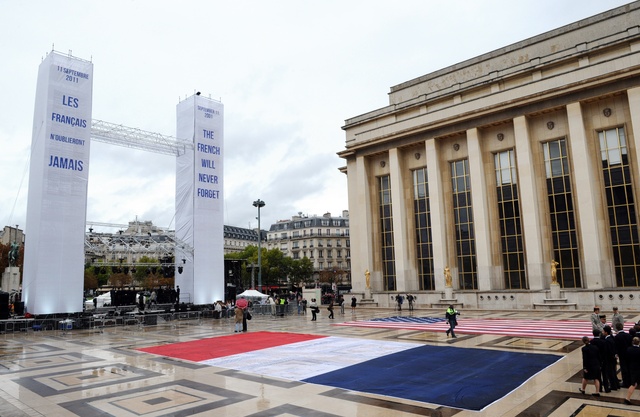By Carlotta Rinaudo

In June 2019 former President Donald Trump publicly signed the Uyghur Human Rights Policy Act, imposing sanctions on Chinese officials responsible for the oppression of the Muslim minority in the Xinjiang region. Behind the closed doors of the G-20 summit in Osaka however, Trump seemed to have a different agenda. According to former national security adviser John Bolton, Trump told Chinese leader Xi Jinping that re-educating the Muslim minority “was exactly the right thing to do”. He then allegedly asked Xi Jinping to help him win the elections in 2020. Unfortunately, this is not the first instance of inconsistent U.S. policy towards the Uyghur people and Central Asia.
For centuries, the Xinjiang region was an arid and sparsely populated land, traversed by a network of lonely trade routes that transported Chinese silk to the Roman world. Its inhabitants, the Uyghurs, were oasis farmers and herders who spoke a Turkic language and practiced Sunni and Sufi Islam, sharing cultural and ethnic ties with the other Turkic tribes of Central Asia.
In 1759 the Xinjiang region was annexed by the Qing Dynasty, while the territories of the other Turkic tribes of Central Asia were slowly absorbed by the Russian Empire, thus becoming known as “Russian Turkestan”.
After the collapse of the Soviet Union, Russian Turkestan became what today is called Turkmenistan, Uzbekistan, Tajikistan, Kyrgyzstan, and the southern part of Kazakhstan. As the Uyghurs watched their Turkic neighbours achieve self-determination, they too demanded independence. China’s reaction to this has grown increasingly assertive over recent years, sparking a heated debate between Washington and Beijing.
On one side, the Chinese government insisted that Uyghur separatists are engaged in terrorist activities, responsible for various bombings and assassinations, and connected with Chechen rebels, Al Qaeda, and the Taliban. In particular, Beijing focuses on a Uyghur separatist group known as the Eastern Turkistan Islamic Movement (ETIM). In the 1990s, representatives of ETIM travelled to Saudi Arabia, Turkey, and eventually Afghanistan, where they met with Osama Bin Laden in order to gain support for their insurgency in Xinjiang. This framing allowed Beijing to legitimise a massive education program which it claims is necessary to fight terrorism and eradicate extremism in the region.
But where Beijing says there are “vocational education and training centres”, and “de-radicalisation measures”, Washington instead sees “detention camps”, and “cultural genocide”. In particular, the Trump administration accused China of human rights abuses, torture, systematic rape, and forced sterilization against the Uyghur minority.
In this dire situation, however, what’s often overlooked is the United States’ own complicity in the origins of the very repression that it publicly condemns.
Following the 9/11 attacks, Beijing labelled Uyghur separatists as terrorist threats. In response, President George W. Bush said that China should not use the War on Terror as an “excuse to persecute minorities”. However, by 2002, Washington had changed its tune. Seeking China’s support in its invasion of Iraq, the US listed ETIM as a terrorist group, and assisted in having ETIM recognised as a terrorist threat by the Security Council. In addition, since 2002, the US has detained 22 Uyghurs in Guantanamo Bay. Blinded by its own interests in Iraq, Washington favoured the initial international legitimisation of repression against the Uyghur minority – the same repression it today condemns.
Washington’s inconsistent foreign policy extended well beyond the Xinjiang region. Following the 9/11 attacks, President Bush built a strong relation with Islam Karimov, the first President of Uzbekistan, whose secret police regularly persecuted political opponents, torturing them in sound-proof cells with electric shocks, asphyxiation, and food deprivation. Nonetheless, Washington turned a blind eye to such oppressive violence.
Sitting on the Northern border of Afghanistan, Uzbekistan provided in fact an ideal location to establish a military base and a supply route that could support the American invasion of Afghanistan. Washington’s silence was a trade-off for Uzbekistan’s logistical support against Afghanistan. Once again blinded by its own interests, the US called its foreign policy a “policy of strategic patience”, perhaps an euphemism for what in reality was a policy of “strategic complicity”.
Today, Washington accuses Beijing of practices that are very similar to those committed by Karimov in Uzbekistan. The only difference being that China is a rival superpower, while Uzbekistan was an ally that served American interests in the War on Terror.
As a part of its policies in Xinjiang, Beijing has announced a poverty relief plan that aims to lift Uyghurs out of poverty by sending them to work in various factories all over China. But again, what Beijing calls “promotion of poverty alleviation”, Washington today calls “forced labour.” Ironically, some factories where such “forced labour” occurs are part of the supply chains of American companies like Apple, Nike, and Coca-Cola. American firms are therefore, consciously or unconsciously, benefitting from the same labour that their government claims to be a form of slavery.
In September 2020, the Uyghur Forced Labour Prevention Act was approved by the House of Representatives, in an attempt to impose stricter controls on goods that could be produced by forced labour. In turn, Beijing claims that Washington is instrumentalising the narrative of “forced labour” to ban Chinese imports amidst a ferocious US-China trade competition. Meanwhile, companies like Nike, Apple, and Coca-Cola have already started to lobby the US Congress in order to weaken the bill. It could undermine their supply chain, they say.
This chaotic situation not only demonstrates that the US and China remain heavily interconnected in their supply network, but it also shed lights on the wide-reaching repercussions of the War on Terror. In 2002, when the US’ enemy number one was Al Qaeda, Washington was ready to label Uyghur separatist groups as terrorist groups, and to justify China’s actions against them. But in 2020, when the US’ primary perceived threat is China itself, Washington has removed that same separatist group from the list, accusing Beijing of human rights abuses.
As the Biden Administration aims to reengage in the defence of human rights, a more consistent policy in Central Asia should be established – one that learns from past mistakes. After all, a global policeman should not be driven by their own agenda, but by the values they claim to protect.
Carlotta is a MA candidate in International Affairs at the Defence Studies Department, King’s College London. After completing her BA in Interpreting and Translation, she moved to the Middle East and developed a strong interest in the MENA region, North Korea, Cybersecurity, and the implications of the rise of China. Carlotta has written on a number of Italian publications on the Hong Kong protests and other forms of political unrest.



